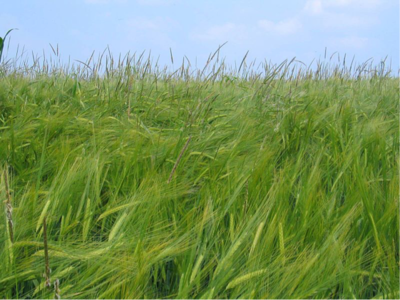Research advises farmers to switch to weed-management strategies that rely less on herbicides!
The current situation
Herbicides can no longer control the weeds that threaten crop productivity and food security in the UK. The repeated use of xenobiotic chemicals caused the development of resistance among plants. This is the conclusion of a nationwide epidemiological assessment of the factors which trigger the abundance and spread of the main agricultural weed, black grass. Black-grass is a major threat to cereal crops.
Research
The University of Sheffield together with Rothamsted Research and the Zoological Society of London researched what factors drive herbicide resistance at a national scale in the UK. The team mapped the density of black-grass populations across 70 farms in England. In addition, they collected historical management data to find out which management factors cause black-grass abundance and herbicide resistance. The research team also surveyed farmers about their use of herbicides, and about how much their different approaches cost them.
Factors related to resistance
The researchers determined that 80% of sampled weed populations were highly resistant to all herbicides currently available for selective black-grass control in a wheat crop.
Firstly, research showed that the development of resistance correlates with weed density. Thus, it is a major driver for the black-grass expansion in England. Increased weed densities lead to the significant loss of profit due to higher herbicide costs and lower crop yields.
Secondly, herbicide resistance is linked with the (historical) intensity of exposure to herbicides. No other management factor has been successful in modifying this resistance risk since it strongly relates to the number of herbicide applications.
Thirdly, mixing different chemicals or regular application did not prevent resistance from developing.
Advice
There is a huge demand for a new strategy to protect crops. Therefore, aforementioned research findings should be urgently adopted by the current industry. Essentially all of them recommend that farmers switch to weed-management strategies to rely less on herbicides, as it is inevitable that weeds will overcome even new agents.
For more information, have a look at the article in the Journal Nature Ecology & Evolution or the news item on SienceDaily.